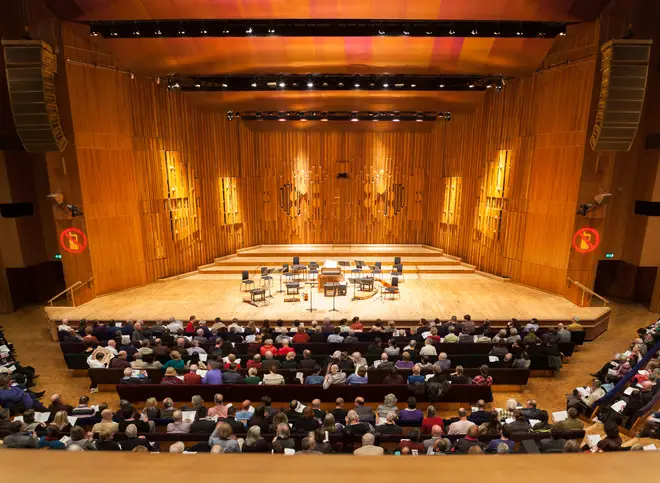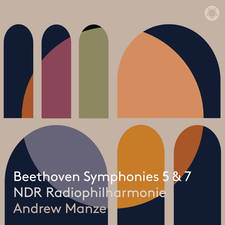Audience confidence rises by nearly 50 percent after attending first post-lockdown concert, study finds
21 September 2021, 14:21 | Updated: 21 September 2021, 14:24

The key to welcoming classical music audiences back isn’t bombarding them with lots of dates, but getting them to their first concert again for reassurance, research suggests.
A study has found that, while audiences remain cautious about returning to classical concerts in the aftermath of COVID-19, once people get back for their first event their confidence rises.
So the key to kickstarting the classical music and arts events we love is getting people back for their first concert, rather than bombarding them with too many dates.
“At a time when hundreds of artists are announcing new and rescheduled tours for the autumn and winter months, the new research suggests the industry needs to refrain from bombarding concertgoers with too many dates. Instead, there needs to be a simple industry-wide focus on encouraging people to just commit to their first concert experience,” the study recommends.
The research, which was conducted by the Royal Philharmonic Orchestra and complemented by further research by Insights Alliance, found that audience confidence rises by nearly 50 percent in people after they attend their first concert – many of them having stayed away from halls for months amidst the closures and restrictions caused by the COVID-19 pandemic.
Of those surveyed before their first trip back to the concert hall, only 53 percent of people said they would feel confident returning to classical concerts. Meanwhile, of those surveyed after their first visit, 79 percent expressed confidence in attending live events.
Read more: Study says 83 percent of Brits under 25 engage with orchestral music

Jonathan Scott performs Vivaldi's Storm in stunning organ solo
This is no doubt testament to the safety they felt at the event, and the enjoyment of the music they heard. In the responses, it was found that the vast majority of attendees did feel safe throughout, and they were reminded of the ‘great atmosphere’ of attending concerts.
The combined research, which takes in responses from 2,000 adults who attended a cultural event or venue between 19 July and 1 August 2021, shows a promising increase in audience confidence since summer 2021.
In the summer, a quarter of regular concertgoers who were surveyed indicated that they were not convinced when concerts would be safe again. A mere 15 percent of people who classed themselves as regular concertgoers before the pandemic had an interest in returning to indoor concerts as soon as possible. And 25 percent said they weren’t sure concerts could be properly safe again.
A further 19 percent said they were looking forward to returning to concerts but it was not a priority. And 17 percent of previous concertgoers said they had got used to not going to concerts during lockdown, so were undecided if they would return to live music events.
Surveyed later on, and after actually visiting, confidence levels rose from 53 percent to 79 percent, which is a relative increase of nearly 50 percent.

Boat shaped like a violin is launched in Venice
And, encouragingly, 87 percent of respondents surveyed after actually attending an event said it would make them more likely to go to another cultural event.
Overall, 81 percent of respondents felt safe and more than four in five returners said there was a ‘great atmosphere’ at the performance they attended.
Vasily Petrenko, music director at the Royal Philharmonic Orchestra says, “As we re-emerge from an unprecedented COVID era, we are reminded what unites us as people. Music has been vital; it has inspired people to create and endure through challenging times, it has supported people’s wellbeing and many have explored new genres and learned to play musical instruments.”
James Williams, managing director at the Royal Philharmonic Orchestra adds, “From these two new studies, it is most welcome news that the joy of attending a live music event inspires many to reconnect with live music, but there is work to be done by everyone in the sector to avoid overpowering people and, instead, to encourage people to return for their first concert experience.”

Watch This Incredible Beethoven 'Ode to Joy' Flashmob
Williams also points out that “many people have been forced to live without the arts for a long time” and “for some, their lockdown routines became the new normal so the very thought of returning to public events can make people feel anxious.”
“The arts has a vital role to enrich lives and support wellbeing and it is clear from this research that when people return to the concert hall they rediscover the sheer joy of a live music event you can only really experience in a concert hall,” he concludes.
The study also asked audiences for their thoughts on government support for the arts and culture sector.
24 percent of people indicated a ‘strong feeling’ that the government still needed to do more to support artists and venues, and 14 percent of respondents said they felt the lack of transparency from the government on how the COVID-19 pilot tests went had undermined their confidence in going to gigs and concerts.
The Royal Philharmonic Orchestra performs its 75th anniversary concert tonight (Tuesday 21 September) at the Royal Albert Hall. Click here to find out more and get tickets.


































